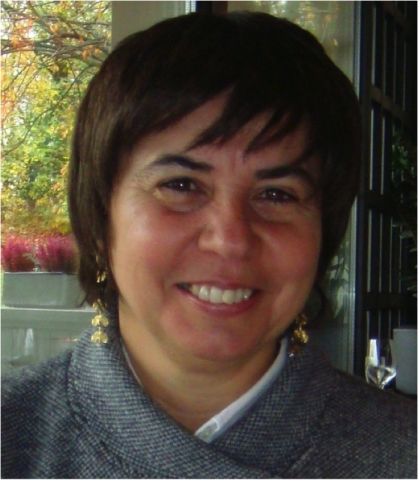event
Georgia Tech-COPE Distinguished Lecture Series - Luisa De Cola
Primary tabs
Professor Luisa De Cola from the University of Strasbourg (Strasbourg, France) visits Georgia Tech and presents a lecture as part of the Georgia Tech-COPE Distinguished Lecture Series.
"Dynamic, Reversible and Hybrid Materials: Properties and Applications"
Dynamic systems that can undergo reversible processes are of great interest for the development of new materials, sensors, and biolabels. The talk will illustrate some of the recent results on soft structures based on metal complexes able to aggregate in fibers, gels and soft mechanochromic materials. The use of platinum complexes as building block for luminescent reversible piezochromic and mechanochromic materials will be illustrated. The emission of the compounds can be tuned by an appropriate choice of the coordinated ligands as well as of their aggregation in different structures. The formation of soft assemblies allows the tuning of the emission color, by pressure and temperature leading to a new class of materials possessing reversible properties. Functional systems can also be created using inert or active nanocontainers such as microporous and mesoporous silica based nanoparticles. In particular examples using the crystalline allumino silicates, zeolite L, and mesoporous organosilicates will be discussed since these materials can act as nanocontainers and due to their biocompatibility used for biomedical applications. The different functionalization of their surface will be discussed, in particular with the aim to show that the particles can be decorated with different functional groups including biocompatible molecules and are able to perfom drug and DNA or RNA delivery inside the cell. The delivery can be probed by a kinetic analyses after the nanoparticles internalization. In particular using confocal fluorescent microscopy it is possible to follow the release of each single component as well as the positioning of the nanocontainers in real time and space. Such achievement allows us to study the fate of the different units and their release time. Also it will be shown how the molecules entrapped in the ordered channels can become active components. The alignment of electroactive molecules inside the narrow channels of a zeolite L, resulted in the formation of molecular wires. The molecular wire length is tunable between 30 and 100 nm and electrical measurements on the 1D assemblies were performed. Finally an ultra-high (> 2000%) room-temperature magnetoresistance was observed applying only a few mT.
About Luisa De Cola
Since October 2012, De Cola is professor at the University of Strasbourg (I.S.I.S.) as chair of Supramolecular and Bio-Material Chemistry, and part time scientist at the INT-KIT, Karlsruhe, Germany.
She was born in Messina, Italy, where she studied chemistry. After a post-doc in USA she moved back to Italy and in 1990 she was appointed Assistant Professor at the University of Bologna (Prof. V. Balzani group). In 1998 she moved as Full Professor to the University of Amsterdam, The Netherlands. In 2004 she accepted a call from the University of Muenster as full professor in chemistry and physics. She has received several awards, the most recent being the ERC advanced grant (2009), the IUPAC award as one of the Distinguished Women in Chemistry and Chemical Engineering (2011), the Gutenberg chair award (2012). She was elected as member of the Academia Europeae in 2012.
Her main interests are luminescent and electroluminescent molecules and their assemblies for the creation of novel materials and porous structures for bio-applications.
Status
- Workflow status: Published
- Created by: Jason Martin
- Created: 05/09/2013
- Modified By: Fletcher Moore
- Modified: 04/13/2017
Categories
Target Audience

